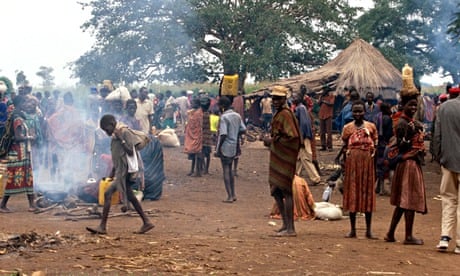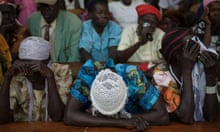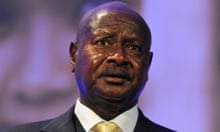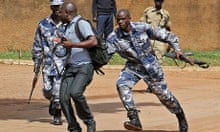Huge mineral deposits in Uganda's Karamoja region, expected to regenerate the conflict-ravaged area, could instead further deepen the suffering of people living there, a report has warned.
Minerals, especially gold, have brought frantic manoeuvres from mining companies and powerful individuals in government who want to receive money from the precious resource, according to the Human Rights Watch (HRW) report.
The report, How can we survive here? The impact of mining on human rights in Karamoja, launched on Monday in Kampala, says mining companies have disregarded the region's indigenous people's land rights – sometimes fencing off swaths of land without their consent.
Land in Karamoja is particularly important to the community, which depends on nomadic pastoralism for survival. "Private sector investment could transform the region – providing jobs and improving the residents' security, access to water, roads, and other infrastructure," the report says.
"[But] as companies have begun to explore and mine the area, communities are voicing serious fears of land grabs, environment damage, and lack of information as to how and when they will see improved access to basic services or other positive impacts."
From the frayed outposts in Moroto district to Rata in Amudat district and Nakapiripirit, gold lies in every tiny pocket of Karamoja, Uganda's most marginalised region in the country's north-east. This has generated huge interest from private companies. Meanwhile, the indigenous people engaged in artisanal mining are being edged out.
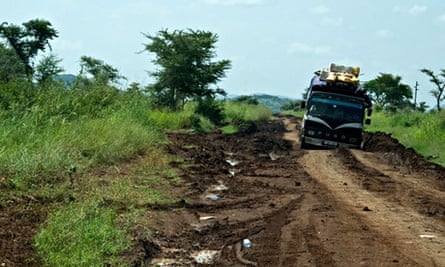
A 2011 survey by the Uganda department of geological survey and mines at the Ministry of Energy found that Karamoja is also endowed with other minerals including limestone, uranium, marble, graphite, gypsum, iron, wolfram, nickel, copper, cobalt, lithium and tin.
But Karamoja's 1.2 million people remain enveloped in chronic poverty.
Uganda's first lady, Janet Museveni, heads the ministry championing the transformation of this region – and while she has tried to develop Karamoja by courting donors such as the World Bank to pour money into it, progress has been slow.
The HRW report is based on research conducted in Uganda between May and November 2013, examining the activities of companies operating in the region and interviews with the local people, some of them actively engaged in mining.
The report adds that the mining companies did not adequately take into consideration the views of local people.
Land in Karamoja is owned communally, which makes it difficult for the mining companies to identify the rightful owners for compensation or consultation.
Maria Burnett, HRW senior researcher for Africa said: "There needs to be a system in place to show [land] ownership so that so that where there is an opportunity to negotiate with mining companies they [indigenous people] can prove land is theirs."
Karamoja has the poorest development indicators in the country – highest poverty levels, malnutrition, and 80% of the population living on less than $1 a day, Burnett said.
Simon Peter Nangiro, chairman for Karamoja Mines Association, said speculators have been holding licences for many years but the government has kept quiet about it. He added that some companies have not been sensitive to the needs of the locals.
The junior minister for mineral development, Peter Lokeris, told the Kampala-based Observer newspaper last year that he was not aware of the exploitation of the indigenous people and that it was only the locals who were engaged in small-scale gold mining. "I am not aware of the illegal activities. You should do it officially by applying for a license, except local people who look for small amounts of gold," he said.
HRW recommends donors such as the World Bank should undertake due diligence to avoid worsening human rights violations.
